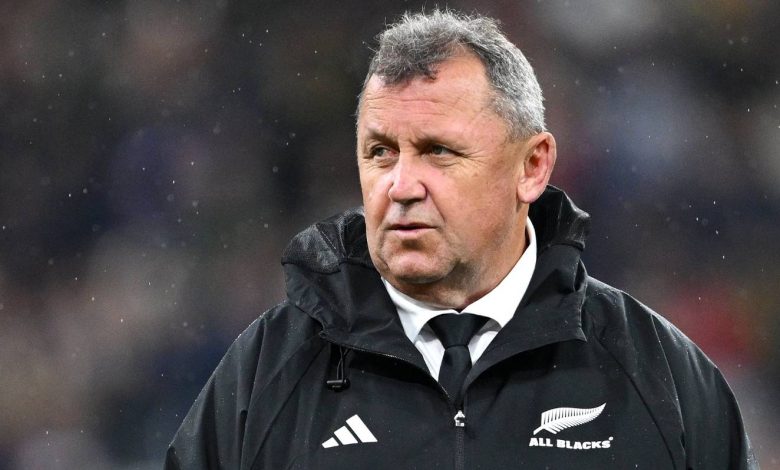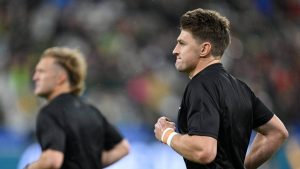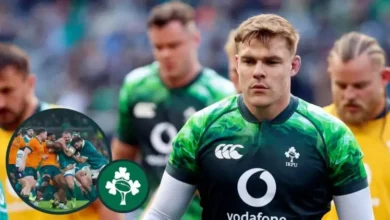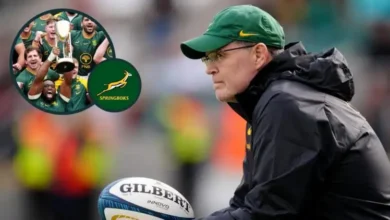Done deal: Blues has successfully signed amazing player

Beauden Barrett’s potentially pivotal return to New Zealand rugby has finally been green-lighted, with the Blues coming on board as the all-important Super Rugby part of the equation in a groundbreaking new deal.
It took some time to get over the line, but Stuff knows that Barrett’s new deal with New Zealand Rugby and the Blues—which includes yet another sizeable third-party contribution—will be made public as early as this week. In the post-Richie Mo’unga era, it will provide new All Blacks coach Scott Robertson with a vital veteran option at No. 10, and it will see him through to the 2027 World Cup.
The Blues chose not to respond to inquiries about the talks.

The 123-test-taking 32-year-old Although All Black is only signed for a single season with Toyota Verblitz in Japan’s League One, he has made no secret of his intention to pursue his goals in the Kiwi game after that ends.
Barrett told Stuff last February, ahead of the ‘23 Super Rugby Pacific season, that he was chasing a new deal that
would enable him to go back for a second World Cup cycle after his second spell in Japan. Barrett stated at the time that his choice would depend on how he felt following the World Cup. “The proposal at this stage is to come back for three years.”
It has obviously taken some time to sort out the different nuances of the new contract, which may cause Barrett to challenge All Blacks test cap scorer Sam Whitelock’s of 153. But everyone seems to be in agreement now and prepared to make their public debut.
In a call with the media on November 9, NZ Rugby made it apparent that the “intention” was for the seasoned playmaker to return after Japan, but they also noted that certain elements of the new deal that was being presented still had
However, those with knowledge of the negotiations have revealed that the Blues have now approved their portion of the agreement, moving it along. The impact of the Super Rugby team is immense, and much like with his first transfer north from the Hurricanes, Barrett’s comeback was largely due to a big third-party investment.
Things understands that following the World Cup in France, where the All Blacks were defeated 12-11 by the Springboks in a thrilling and controversial final, Barrett was able to make sense of his personal objectives. Only then did genuine negotiations start. It made sense that it took a little while.
Barrett, who played well at fullback in France until an indifferent performance in the final, had to convince himself
foremost, that he was still capable of and motivated to complete another cycle. One source put Barrett’s mentality this way: “He wanted to make sure he still had the music in him.”
Once Robertson made it obvious that he saw value in having the veteran as part of his All Blacks group going ahead, NZ Rugby’s part in the new arrangement was quite simple. Since he has spent the most of the last six years playing fullback in the international arena, it is possible that the new coach views him more as a No 10 than a fullback.
Mo’unga’s three-year contract at Toshiba appears to have ended permanently, thus Barrett’s departure would have created a big void at number five, with Damian McKenzie and Stephen Perofeta filling it.
after having experience, McKenzie has only started five of his 47 international matches at number 10, and 26-year-old Perofeta was left off of the squad for the 2022 World Cup after playing in just three tests during his debut season. Although he is still extremely early in his career, Crusaders pivot Fergus Burke is also regarded as a possible contender.
What Robertson is considering at No. 10 is still unknown, however he stated to Stuff in an interview from November that he would be happy to include Barrett’s name in the selection process. According to the rules of the new agreement, he would be eligible for the 2024 test season.
“The players who played rugby in Japan returned and performed well. Robertson stated, “He has a ton of experience, and you have to play well no matter where you are.”
It was the message addressed to him. Play well, and we’ll keep an eye on you from a distance, provide feedback, and stay in touch.
Barrett’s return is viewed as equally significant by the Blues, who carefully considered the benefits of having the elite playmaker back (he is regarded as a game-changer on the field and an excellent role model for younger players at the franchise) against the substantial investment needed at a time when Super Rugby franchises are being asked to go farther and farther to retain top talent in New Zealand.



